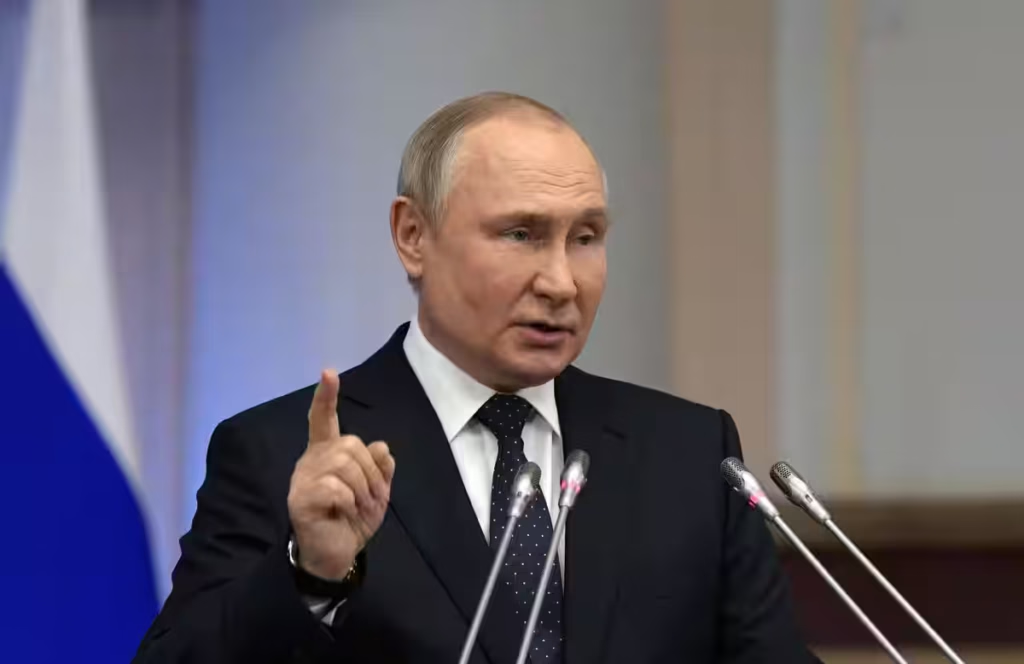MOSCOW: In a move that could signal a shift in the ongoing conflict with Ukraine, Russian President Vladimir Putin has declared Russia’s readiness for peace negotiations. However, his willingness comes with a caveat: a direct warning to Kyiv and its Western backers about the dire consequences should Ukraine pursue nuclear armament.
During a recent address, Putin reiterated Russia’s stance on peace talks, emphasizing that any negotiation must reflect the “new realities” on the ground. This includes acknowledging the territories Russia has declared as part of its federation, specifically the regions of Donetsk, Luhansk, Zaporizhzhia, and Kherson. The Russian leader suggested revisiting the draft peace treaty discussed in Istanbul earlier in the conflict, despite its previous collapse due to continued military engagement and lack of trust between the parties involved.
Putin’s remarks come at a time when the war has settled into a brutal stalemate, with significant casualties and infrastructure damage on both sides. The mention of peace talks, even with conditions, offers a glimmer of hope for the cessation of hostilities, though skepticism remains high due to the history of failed negotiations and Russia’s recent military actions.
Simultaneously, Putin issued an ominous warning concerning Ukraine’s nuclear ambitions. He stated unequivocally that any move by Ukraine to acquire nuclear weapons would be met with the full might of Russia’s military capabilities, including its nuclear arsenal. This statement underscores the precarious balance of power in Eastern Europe, where nuclear rhetoric has been a tool to exert pressure and control over regional security dynamics.
“Russia will not tolerate nuclear threats from its borders,” Putin emphasized, drawing a line in the sand regarding Ukraine’s potential rearmament. His comments are seen as a direct response to discussions in Western circles about bolstering Ukraine’s defense capabilities, possibly through nuclear deterrence, to counter Russian aggression.
The international community has responded with mixed reactions. Some Western leaders and analysts interpret Putin’s dual messaging as a tactical approach: offering peace as a carrot while holding the nuclear stick. NATO and U.S. officials have reiterated their commitment to Ukraine’s territorial integrity but have also stressed that any escalation involving nuclear weapons would have severe repercussions for global security.
The United Nations has called for de-escalation and genuine dialogue, with Secretary-General António Guterres urging both sides to seek a peaceful resolution “in line with international law.” Meanwhile, discussions at platforms like the BRICS summit have seen calls from various leaders for a swift end to the conflict, highlighting the global ramifications of the war.


